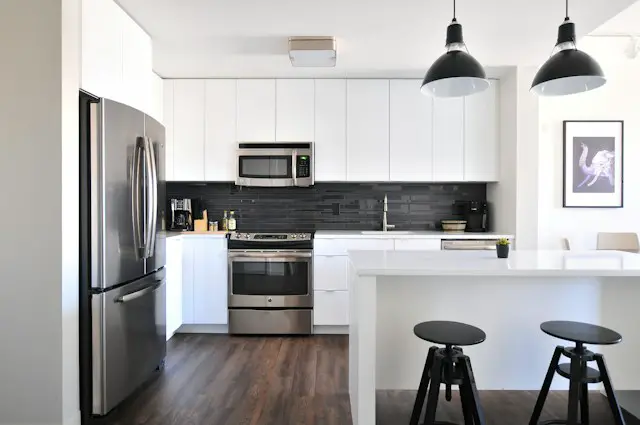
Birmingham, Alabama, fondly known as ‘The Magic City,’ has undergone a remarkable transformation in its real estate market over the past decade. It’s been a rollercoaster ride, with ups and downs, but mostly, it’s been a story of growth and resilience. Let’s dive into the evolution of this vibrant market and uncover the layers that make it a fascinating case study for investors, homeowners, and industry watchers alike.
The Early 2010s: A Market in Recovery
Cast your mind back to the early 2010s. The country was still feeling the aftershocks of the 2008 financial crisis. Birmingham was no exception. The real estate market here was a bit sluggish, to say the least. But, as the economy began to pick up steam, so did the interest in Birmingham’s homes and commercial spaces.
Investors started to see the potential in the city’s historic neighborhoods. Areas like Avondale and Woodlawn, once overlooked, began to buzz with activity. Renovations sprang up, breathing new life into classic bungalows and craftsman-style homes.
Mid-Decade Growth: A Surge in Demand
By the mid-2010s, Birmingham’s real estate market was heating up. The city’s affordable housing attracted first-time homebuyers and young professionals. The demand for homes started to outpace supply, nudging property values northward.
Developers took notice. New construction projects popped up, particularly in the downtown area. Condos, lofts, and luxury apartments started to reshape the city’s skyline. Birmingham was becoming an urbanite’s dream, with walkable streets and a burgeoning food scene.
The Rise of Suburban Appeal
While downtown thrived, the suburbs weren’t left behind. Communities like Hoover and Vestavia Hills saw significant growth. Families were drawn to the promise of spacious homes, good schools, and a sense of community.
Suburban developments offered amenities like community pools, parks, and shopping centers. These conveniences, coupled with the promise of a quieter lifestyle, made the suburbs a hot commodity in the Birmingham Real Estate Market.
Technology and Real Estate
Technology began to play a pivotal role in the market’s evolution. Online listings and virtual tours became the norm, especially as we approached the late 2010s. Buyers could now scroll through properties on their smartphones, making house hunting a 24/7 possibility.
Real estate agents in Birmingham adapted quickly, leveraging social media and digital marketing to reach a wider audience. This tech-savvy approach helped keep the market buoyant, even as it faced new challenges.
The 2020s: A Market Adapting to Change
As we entered a new decade, no one could have predicted the curveball that was 2020. The pandemic brought uncertainty, but Birmingham’s real estate market showed remarkable fortitude. With interest rates hitting historic lows, the market didn’t just survive; it thrived.
Remote work became the new norm, and with it, the desire for home offices and outdoor spaces surged. Birmingham’s spacious homes and lots became even more attractive, leading to bidding wars and properties selling above asking price.
Looking to the Future
Today, Birmingham’s real estate market is a blend of historic charm and modern convenience. It’s a market that has learned to adapt, innovate, and grow. With a strong economy and continued interest in both urban and suburban living, the future looks bright for this Southern gem.
Investors are eyeing Birmingham as a city on the rise, with potential for significant returns. Homebuyers see it as a place to put down roots, in neighborhoods that reflect both the city’s heritage and its forward momentum.
FAQs
- What makes Birmingham’s real estate market unique?
Birmingham’s market is unique due to its combination of affordability, historic neighborhoods undergoing revitalization, and a strong sense of community. The city offers a diverse range of living options, from urban lofts to suburban estates.
- How has technology impacted Birmingham’s real estate market?
Technology has made property listings more accessible and has streamlined the buying and selling process. Virtual tours and online marketing have become crucial tools for real estate agents in Birmingham.
- Is Birmingham a good place for real estate investment?
Yes, Birmingham is considered a good place for investment due to its growing economy, affordable property prices, and potential for appreciation. The city’s real estate market has shown resilience and adaptability, making it attractive to investors.
Conclusion
The past decade has been a testament to Birmingham’s ability to bounce back and forge ahead. From the post-recession recovery to the pandemic’s unexpected twists, the Birmingham Real Estate Market has not just weathered the storm; it has set sail towards new horizons. With a rich history and a dynamic present, Birmingham continues to be a beacon for those seeking opportunity in the Heart of Dixie.
For anyone looking to dive into the real estate market, Birmingham offers a landscape filled with potential. Whether you’re a seasoned investor or a first-time homebuyer, there’s something in this city for you. As we look to the future, one thing is certain: Birmingham’s real estate market will continue to evolve, and I, for one, can’t wait to see where it goes next.